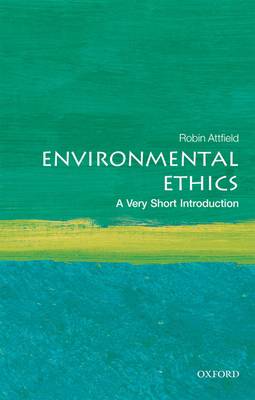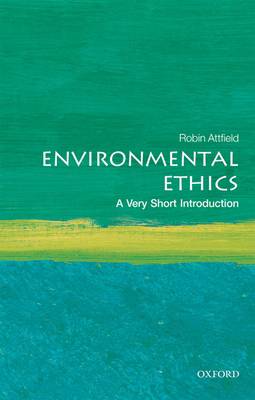
- Afhalen na 1 uur in een winkel met voorraad
- Gratis thuislevering in België vanaf € 30
- Ruim aanbod met 7 miljoen producten
- Afhalen na 1 uur in een winkel met voorraad
- Gratis thuislevering in België vanaf € 30
- Ruim aanbod met 7 miljoen producten
Zoeken
Omschrijving
Environmental ethics is a relatively new branch of philosophy, which studies the values and principles involved in combatting environmental problems such as pollution, loss of species and habitats, and climate change. As our environment faces evermore threats from human activities these core issues are becoming increasingly important. In this Very Short Introduction Robin Attfield traces the origins of environmental ethics as a discipline, and considers how it defends the independent value of living creatures, and the need to make decisions informed by the needs and interests of future generations. Exploring the diverse approaches to ethical decisions and judgements, he highlights the importance of making processes of production and consumption sustainable and of addressing human population levels, together with policies for preserving species, sub-species, and their habitats. Along the way Attfield discusses different movements such as Deep Ecology, Social Ecology, the Environmental Justice movement and the Green movement, and also considers the attitudes to the environment of the world's religions, including the approach from the major religions and the contributions of the indigenous religions of Asia, Africa and North America. Analyzing the current threat of climate change, and proposals for climate engineering, he demonstrates how responsibility for the environment ultimately lies with us all, from states and corporations to individuals, and emphasizes how concerted action is required to manage our environment ethically and sustainably. ABOUT THE SERIES: The Very Short Introductions series from Oxford University Press contains hundreds of titles in almost every subject area. These pocket-sized books are the perfect way to get ahead in a new subject quickly. Our expert authors combine facts, analysis, perspective, new ideas, and enthusiasm to make interesting and challenging topics highly readable.
Specificaties
Betrokkenen
- Auteur(s):
- Uitgeverij:
Inhoud
- Aantal bladzijden:
- 160
- Taal:
- Engels
- Reeks:
Eigenschappen
- Productcode (EAN):
- 9780198797166
- Verschijningsdatum:
- 13/02/2019
- Uitvoering:
- Paperback
- Formaat:
- Trade paperback (VS)
- Afmetingen:
- 112 mm x 173 mm
- Gewicht:
- 113 g

Alleen bij Standaard Boekhandel
Beoordelingen
We publiceren alleen reviews die voldoen aan de voorwaarden voor reviews. Bekijk onze voorwaarden voor reviews.











